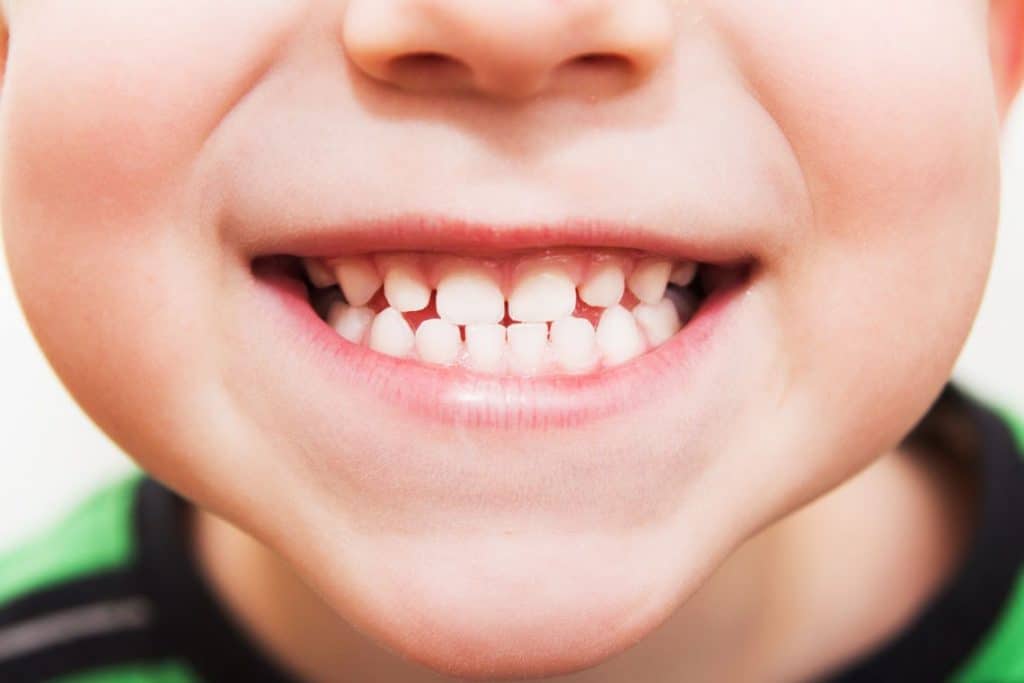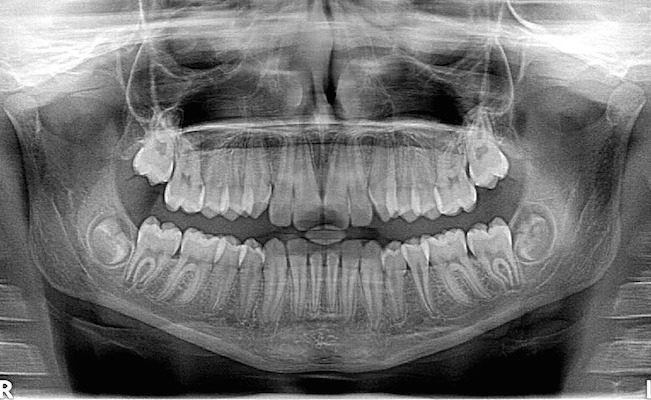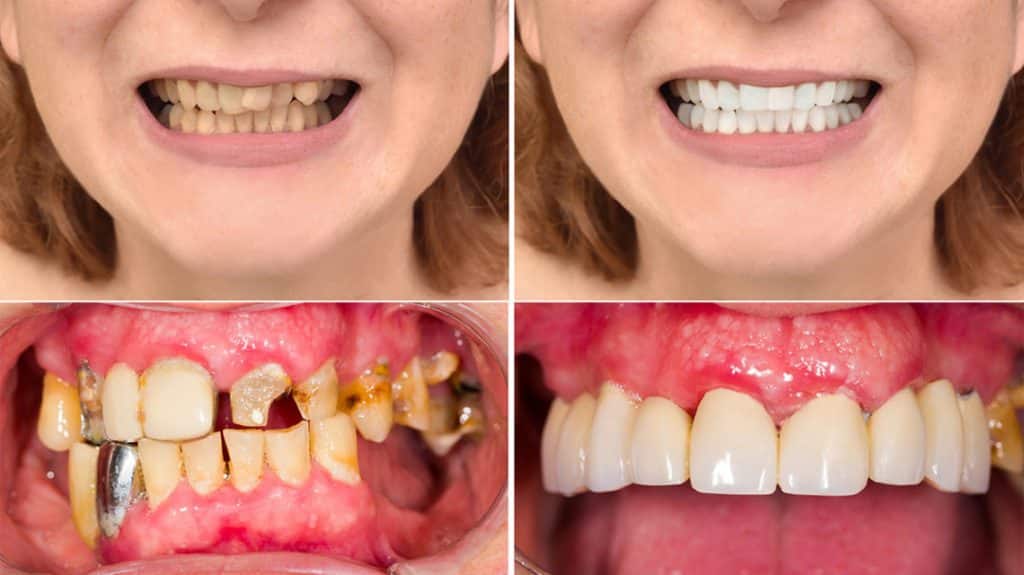Teeth may hurt after flossing due to gum inflammation or gum disease. Flossing exposes the sensitive gum tissue to irritation, causing discomfort.
Are you experiencing tooth pain after flossing? It’s not uncommon to feel some discomfort after flossing, which is often caused by gum inflammation or gum disease. When you floss, it can expose the sensitive gum tissue to irritation, leading to soreness or pain.
While it’s essential to maintain good oral hygiene by flossing regularly, it’s also important to ensure you’re using proper flossing techniques and not being too aggressive, as this can cause further irritation. We will explore the potential reasons for teeth pain after flossing and provide tips for how to alleviate the discomfort.

Credit: www.glenparkdental.com
Understanding The Causes Of Teeth Sensitivity
Teeth may experience sensitivity after flossing due to various factors. Harsh flossing techniques, such as applying excessive force, can cause gum inflammation and discomfort. Moreover, tooth decay can lead to heightened sensitivity as the protective enamel wears away, exposing the dentin beneath.
Enamel erosion from acidic foods or drinks can also contribute to teeth sensitivity. It is important to adopt gentle flossing techniques and use a soft-bristled toothbrush to prevent further irritation. Maintaining good oral hygiene and visiting the dentist regularly can help identify and address any underlying issues that may be causing teeth sensitivity.
By understanding the causes of teeth sensitivity after flossing, individuals can take the necessary steps to alleviate discomfort and maintain oral health.
The Connection Between Teeth Sensitivity And Flossing
Teeth can become sensitive after flossing, and there is a clear connection between the two. Proper flossing technique is crucial for maintaining good oral hygiene. Flossing helps to remove plaque and food particles that can get stuck between teeth, preventing cavities and gum disease.
However, flossing incorrectly or too aggressively can lead to tooth sensitivity. This can happen if the dental floss is causing damage to the tooth enamel or if there is an underlying dental issue. The symptoms of tooth sensitivity after flossing include pain or discomfort when eating or drinking hot or cold foods, as well as sensitivity to touch or pressure.
If you experience these symptoms, it’s important to identify the cause and adjust your flossing technique accordingly. Regular dental check-ups can also help to identify any underlying dental issues that may be contributing to tooth sensitivity.
Tips And Tricks To Alleviate Teeth Sensitivity After Flossing
Are your teeth feeling sensitive after flossing? Here are some tips to help alleviate the discomfort. First, make sure to use gentle flossing techniques to avoid further irritation. Choosing the right floss for sensitive teeth can also make a difference.
Look for options that are designed to be gentle. Additionally, incorporating desensitizing toothpaste into your oral care routine can help reduce sensitivity. These toothpastes contain ingredients that can numb the nerve endings in your teeth. If the sensitivity persists, you may want to consider trying hypersensitivity treatments recommended by your dentist.
By following these tips and tricks, you can enjoy the benefits of flossing without the painful aftermath.
Expert Advice: Avoiding Teeth Sensitivity During Flossing
Teeth sensitivity after flossing can be avoided by following dental professionals’ recommendations. Proper flossing techniques, along with the right tools, are crucial for preventing gum inflammation. It is important to maintain good oral hygiene habits to keep teeth healthy and minimize discomfort.
Regularly flossing using gentle, back-and-forth motions between each tooth is key. Using a waxed or coated floss can also help reduce sensitivity. Dental professionals suggest using a soft-bristled toothbrush and fluoride toothpaste to brush your teeth thoroughly twice a day.
Additionally, incorporating mouthwash into your oral care routine can provide added protection against sensitivity. By following these expert recommendations, you can floss without experiencing teeth pain or sensitivity.
Strengthening Your Teeth And Gums
Teeth can sometimes hurt after flossing, but there are ways to strengthen both your teeth and gums. Regular dental check-ups and cleanings are crucial for maintaining oral health. These appointments allow your dentist to assess any issues and provide necessary treatments for enamel strengthening.
It is also important to promote strong gum health to prevent tooth pain. Incorporating a balanced diet can greatly improve the overall health of your teeth and gums. By avoiding commonly overused words and phrases, this article aims to provide valuable information on how to alleviate tooth pain after flossing and maintain a healthy smile.
So, if you experience discomfort after flossing, follow these tips to strengthen your teeth and gums naturally.
Daily Oral Care Routine For Sensitive Teeth
Teeth can hurt after flossing, especially if you have sensitive teeth. To alleviate discomfort, it’s important to establish a daily oral care routine. When choosing a toothbrush, opt for one with soft bristles to avoid further irritation. To prevent sensitivity, it is recommended to floss at least once a day, removing any trapped food particles.
Incorporating a mouthwash designed specifically for sensitive teeth can provide additional relief and protection. Alongside these steps, there are a few extra tips to reduce sensitivity, such as using a toothpaste formulated for sensitive teeth and avoiding very hot or cold foods and beverages.
By following these guidelines, you can maintain a healthy oral care routine while reducing discomfort associated with sensitive teeth.
Understanding Your Dental Health
Teeth sometimes ache after flossing due to various dental health issues. Identifying these problems is essential for maintaining oral health. It is important to consider the possibility of allergies or sensitivities. Additionally, misalignment or bite issues can also cause discomfort.
Seeking professional guidance is crucial for addressing these underlying issues. Dentists can provide recommendations on proper flossing techniques and suggest suitable tools. Taking their advice can help alleviate pain and prevent future dental problems. It is necessary to prioritize dental health and seek professional help when needed.
Regular check-ups can help identify and tackle any underlying oral health issues promptly. Maintaining good oral hygiene is key to preserving overall dental health and preventing teeth pain after flossing.
Exploring Advanced Dental Treatments
Teeth may experience sensitivity after flossing, which could be due to various reasons. One of them could be the presence of a fluoride treatment, a common procedure that strengthens tooth enamel. Dental bonding, another advanced treatment, can alleviate discomfort caused by gaps or chips.
Dental sealants, on the other hand, are effective in preventing tooth decay by providing a protective layer on the surface. Lastly, dental restorations such as crowns or fillings can help restore damaged teeth and alleviate any pain or sensitivity. It is essential to consult a dentist to identify the root cause of tooth pain after flossing and discuss the best course of action for treatment.
Regular dental check-ups are crucial for maintaining oral health and addressing any discomfort promptly.
Incorporating Lifestyle Changes
Teeth can sometimes hurt after flossing due to various factors. Incorporating lifestyle changes is crucial for managing this discomfort. One helpful step is managing stress, as it can contribute to teeth grinding and clenching, known as bruxism. Another important consideration is avoiding acidic foods and beverages, as they can erode the tooth enamel and cause sensitivity.
Quitting smoking and tobacco use is also essential, as they can lead to gum disease and tooth decay. Lastly, maintaining healthy habits such as regular brushing, flossing, and visiting the dentist can prevent dental issues and alleviate any discomfort experienced after flossing.
By adopting these lifestyle changes, individuals can ensure optimal oral health and minimize tooth pain.
Oral Care Products For Sensitive Teeth
Teeth may experience discomfort after flossing, especially for those with sensitivity. Thus, it is crucial to use oral care products catering to delicate teeth. Specially formulated toothpaste for sensitive teeth can offer relief. Mouthwash designed for sensitivity can also aid in soothing any discomfort.
Additionally, choosing toothbrushes with soft bristles can be beneficial for individuals with sensitive gums. For those undergoing orthodontic treatment, there are specialized products available to cater to their unique needs. Taking care of sensitive teeth requires a comprehensive approach, ensuring that each step in oral care is gentle and effective.
Regular use of these specialized products can help alleviate any discomfort experienced after flossing.
Taking Action For Teeth Sensitivity Relief
Teeth sensitivity after flossing can be uncomfortable. To find relief, it’s crucial to consult with a dental professional. They can develop a personalized oral care plan based on your specific needs. Tracking the progress of sensitivity relief is important to ensure that the chosen treatment is effective.
Additionally, educating others about the importance of addressing teeth sensitivity can help spread awareness about proper oral care. By taking action and seeking professional advice, you can find relief from teeth sensitivity and enhance your overall oral health.
Frequently Asked Questions For Teeth Hurt After Flossing
Why Do My Teeth Hurt After Flossing?
Teeth can hurt after flossing due to gum inflammation caused by improper technique or underlying dental issues. Flossing may irritate sensitive gums and expose hidden cavities or gum diseases, leading to discomfort. It’s important to ensure proper flossing technique and consult a dentist if the pain persists.
How Can I Prevent Teeth Pain While Flossing?
To prevent teeth pain while flossing, maintain a proper flossing technique. Gently guide the floss between your teeth, avoiding snapping or forcing it. Give extra attention to areas where teeth are closely spaced or overlap. If the pain persists, try using a different type of floss and consult your dentist for advice.
Is It Normal For My Teeth To Bleed After Flossing?
It’s not normal for your teeth to bleed after flossing. Bleeding gums can be a sign of gum disease or plaque buildup. If your teeth bleed consistently while flossing, consult your dentist to identify the underlying cause and develop an appropriate treatment plan.
Proper oral hygiene can prevent gum bleeding during flossing.
Conclusion
After flossing, it’s not uncommon to experience tooth sensitivity. While this discomfort can be bothersome, it’s generally temporary and shouldn’t discourage you from this essential oral hygiene habit. Understanding why your teeth hurt after flossing can help you better manage and prevent any discomfort.
One possible cause is gum inflammation or gum disease, which can make the gums more sensitive and prone to bleeding. Another reason could be improper flossing technique, such as using too much force or not using the right type of floss.
Sensitivity can also occur if you have a cavity or tooth decay. To alleviate post-flossing discomfort, try using a softer toothbrush or toothpaste designed for sensitive teeth. Regular dental check-ups and cleanings can also help maintain good oral health. Remember, even if your teeth hurt after flossing, the benefits of flossing far outweigh any temporary discomfort.
So, keep flossing regularly for a healthy and happy smile!








